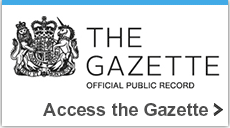Terrorist Asset-Freezing (Temporary Provisions) Act 2010: Chapter 2 explanatory notes
- Format:
- Corporate Author:
- Great Britain
- Publisher:
- TSO (The Stationery Office)
The Treasury had implemented Resolution 1373 (2001) adopted by the Security Council of the United Nations on 28 September 2001 relating to terrorism and resolution 1452 (2002) adopted on 20 December 2002 relating to humanitarian exemptions, by means of a number of Orders in Council (the UN Terrorism Orders). Resolution 1373 includes a requirement that member states must (a) prevent the financing of terrorist acts, including the freezing of funds and economic resources of persons who commit or attempt to commit, terrorist acts or participate in or facilitate such acts, and (b) prohibit their nationals and those within their territories from making funds, financial services or economic resources available to such persons. Resolution 1452 introduces exemptions to permit payments necessary to meet basic humanitarian needs (such as payments for foodstuffs, rent or mortgage, medicines and medical treatment, taxes, insurance premiums, public utility charges and legal fees and expenses). In January 2010 the Supreme Court judged one of the Orders in Council to be invalid. The purpose of this Act is to provide for the temporary validity of the UN Terrorism Orders in order to maintain asset-freezing restrictions whilst the Government takes steps to put in place by means of primary legislation an asset-freezing regime to comply with the obligations in resolution 1373. The Government's draft Bill was published as Command paper Cm. 7806 (9780101780629).
| Extent | [8]p. | ISBN | 9780105602101 |
|---|---|---|---|
| Size | N/A | Price | £8.14 |
| Format | Paperback | Published | 17 Feb 2010 |
| Availability | Black and white copy, 1-3 days | Delivery | Delivery options and charges |




